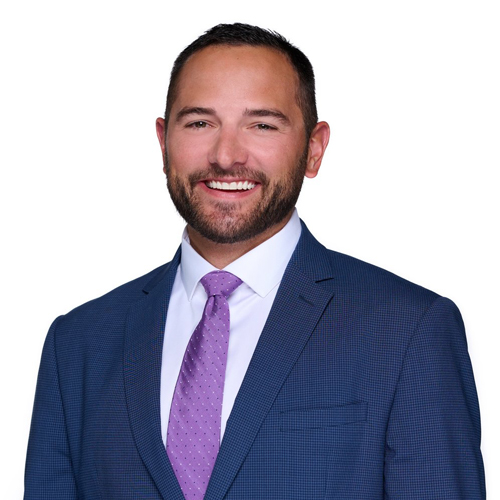Many top government officials and politicians see a great need for a nationally-mandated retirement plan due to Americans’ worsening ability to save and invest for retirement.
A recently-introduced, bi-partisan bill would see a government-backed and -mandated Starter 401(K) introduced to small businesses around the country, following in the footsteps of many states that have already or are in the process of implementing similar legislation.
The Retirement Statistics
According to CNBC’s analysis of Natix’s 2021 Retirement report, 36% of Americans feel they will NEVER be able to retire. The same report also shows the United States dropping down a spot to 17th place in the Global Retirement Index in 2021, losing out to such countries as Slovenia, Ireland, and Finland.
To top things off, a 2017 report from the Government Accountability Office (GAO) reveals Americans between the ages of 55-64 had a median savings of only $107,000 and 29% of households had no retirement plans at all! Stretching out such meager savings for 20 years would equal to a $445 monthly payment – and once inflation is accounted for, that $445 would be quite paltry after 15 years.
Looking at the bigger picture, unless action is taken now, a full-blown retirement crisis is on the horizon. This legislation hopes to stave off or reduce the effects such a crisis would entail.
The Proposed Plan.
The Starter 401(K) would enroll all qualified workers and automatically withdraw 3% of their salary and invest it. All contributions would be tax-deferred, meaning any distributions would be taxed at whatever bracket the retiree happens to be in. Unfortunately, there will be no Roth component to it in its current form. A Roth is a post-tax account that allows investments to grow tax-free and is widely considered a crucial tool in any retirement plan.
There is, at the time of writing, no indication that employers will be forced to match any percentage or dollar amount into their employees’ plans. This is in line with one of the key reasons for the program’s creation – small-business owners feel that administering retirement plans is simply too expensive and time-consuming.
The ‘Starter-K’ would remove hurdles and streamline regulations current business owners face while simultaneously lowering costs and providing tax incentives, according to the National Association of Plan Advisors.
Annual contributions would be limited to $6,000 annually, similar to a Traditional or Roth IRA. Also, there would be ‘catch up contributions’ upon reaching age 50. This may not seem like a lot, but something is better than nothing and may induce into Americans a much-needed habit of saving young and saving often.
Some other key takeaways:
- Any small businesses that don’t currently offer a retirement plan would be eligible.
- The Department of Labor would be tapped to provide simplified reporting for the plans.
Small Businesses Need Retirement Plans
The program is mainly aimed at small business, where we see retirement numbers displaying the weakest results. The Retirement Association President shares the following about the newly introduced legislation: “The nation’s retirement savings gap is almost exclusively found among small businesses, many of which cite administrative concerns and cost as primary reasons they don’t offer currently access to a retirement savings plan at work. As they look to meet the challenges of the ‘Great Resignation,’ the ‘Starter K’ provides both a simplified structure and real tax incentives for hundreds of thousands of small businesses to provide for the first time this option to their workforce.” With 47.3% of American employees working for a small business, this would be a boon for those who need it most.
How Does Florida Square Up?
In 2021, 41.1.% of Floridians worked for a small business and 98.9% of all Florida businesses could be declared as ‘small’, according to the Small Business Administration’s Office of Adcovacy.
If Floridians save the same as their national counterparts, it’s easy to imagine the state could be in dire straits 20-30 years down the road. But, unfortunately, we don’t need to imagine. We must only look at the Washington DC non-profit Corporation for Enterprise Development’s study on saving ability in the tri-metro area. The study surmises that about $6,000 is necessary to pay 3 months’ expenses, but 49% of households don’t have even that spread across all savings and retirement plans. This ends up being the highest percentage of households unable to appropriately save in the largest 31 metro areas in the country.
Sarasota is in a better financial position than the tri-metro area, but if you’re planning to retire here, you may need more than you expect. Sarasota is one of the fastest-growing communities in the country, with many of the newcomers being affluent. This trend is driving up the prices of commodities and real estate. Coupled with longer retirements and higher costs of medicine, what you end up with could be a long shot from what you need!
State-Mandated Retirement Plans
Many states, citing their own concerns about their citizens’ preparations for a longer-than-expected retirement, have implemented into law their own state-backed retirement plans. One such example is the CalSavers plan, which recently went into full effect. The CalSavers offers workers to invest in one of five funds. Examples include a Target Date Fund that is adjusted from a more aggressive to a more conservative strategy as one ages, a more traditional Money Market Fund, or a Sustainable Balanced Fund that invests in companies that take care to operate within the principles of environmental sustainability and social equality.
Another example of a State-mandated retirement plan is the Illinois Secure Choice 401(K). Investor offerings include a Target Date Fund, a more conservative fund that follows a bond index, or a more aggressive fund that corresponds to the S&P 500, amongst others.
By looking at the various state retirement plans, we can get an idea of how a nationally-implemented program would work. In my opinion, it is great that a higher percentage of Americans will have easy access to retirement plans, but there are downsides. Due to their inherent simplicity and user-friendliness, the available funds are too limited and inflexible by financial advisor standards, who use a slew of funds, stocks, bonds, ETFs, mutual funds, equities and other financial instruments to create tailor-made plans for each individual client.
At the time of writing, however, there is no equivalent law being discussed in Florida, so the best hope for small business owners to provide a practical and cheap retirement solution seems to be the Starter-K.
If you’d like to get ahead of the game and explore the best options for your company or yourself, click the button below.













